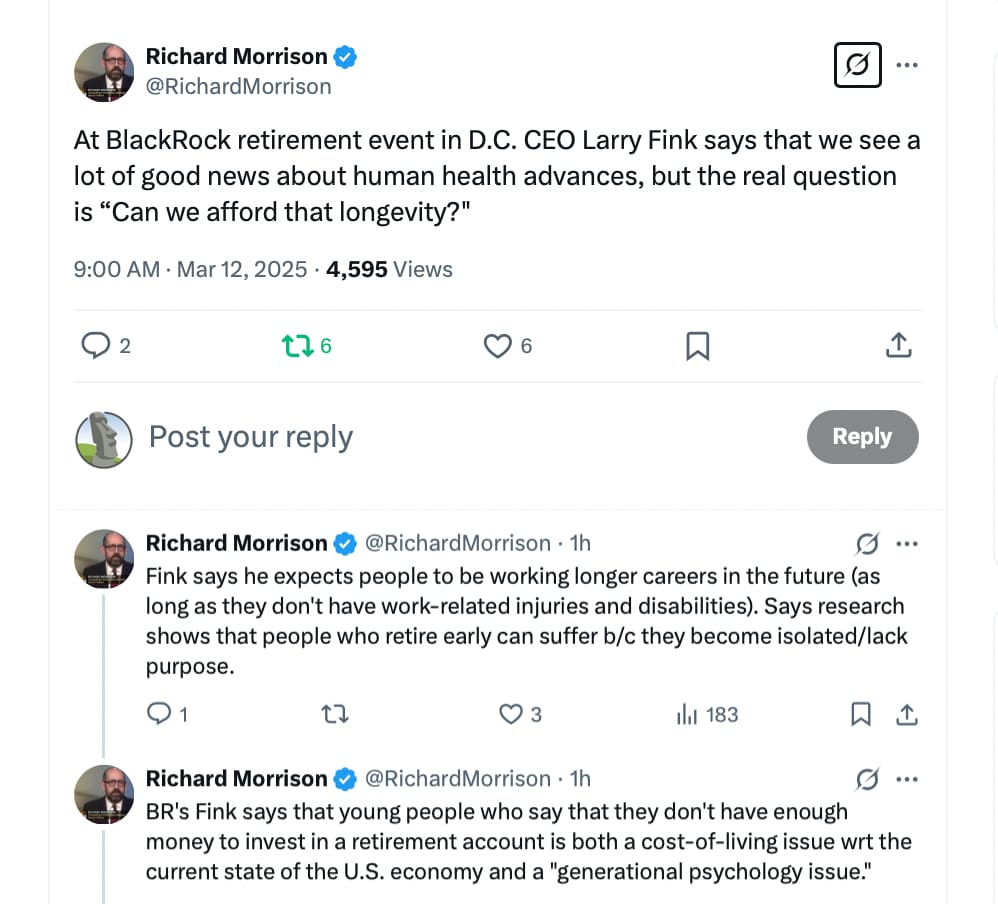Like I said before, you need to understand the risk factors, especially for age 90+ policies.
There are multiple ones that I already know very well that affect centenarian likelihood ratios (ie FOXO3). Including centenarian smokers genotypes.
I am aware of ways to beat the insurance companies even if someone in age 90s is smoking - you might even get a better return than 20% - the answer is actually very simple and highly evidenced in the literature and enough case studies (as well as my own simulations on how it works mechanistically) - one of them is NRF2. There are also a lot of human clinical trials with indirect evidence but highly powered and biopsy data proving it extensively in multiple areas - but especially lung cancer prevention. The chance of death for an age 90 policyholder losing to the insurance companies is a lot lower when you run it with this information.
I found exactly zero insurance companies that are familiar - not a lack of search effort - and I also studied life settlement investments in depth. And all the current gene therapies that positively affect centenarian likelihood are experimental but very high safety is involved if you have a simple target.
You may consider a centenarian that heavily smokes, drinks heavily, and eats junk food as “winning the lottery” today - but it is already possible to reverse engineer that such that anyone can “win the lottery” with the “insurance casino” by legally “cheating” with gene therapy. Even if one doesn’t have access - there are carefully supervised clinical trials where they could even pay you to do it.
I am quite familiar with cell and gene-based therapies, my dad has tons of experience managing many of these clinical trials all the way up to FDA approval. I have followed every single trial for CAR-T, Crispr, etc myself as well. I have undertaken one myself for pathological myopia with only one eye gene therapy target and literally controlled a slow march towards vision loss/retinal detachment in one eye as noted by 5+ years of annual vision exams. They won’t have a record of CLIA-certified whole genome sequencing results due to privacy reasons unless you hand it to them on a silver platter. They won’t even ask for it when underwriting.
You’re assuming actuaries have perfect information - if you’ve been in this forum, understand how actuaries work (I read through all the actuarial exam licensing textbooks and I’m very familiar with insurance), look at the information available to actuaries and do a small survey of the actuaries doing these tables - it is clearly in our favor.
They aren’t likely to win if you have better information, and they can’t even access your whole genome sequence data if you did it CLIA-certified privately. The key is finding out who is the loser on the poker table. The losers are the insurance companies - I am fairly certain based on enough data on their known awareness of emerging tail risks with experience of beating the insurance companies enough times. They are still focusing on the obvious ones like global warming, cybersecurity, and demographic shifts. Rapamycin or anything similar I assure you is not on their radar from my current extensive search.
And even then the insurance companies aren’t that scared - they have reinsurance just in case. They also can’t attempt to wiggle out of the claim like life settlements - if you’re alive and you didn’t commit fraud with a completely legal underwriting process - they have to pay you
Btw, this is 20%+ returns with the principal portion not taxed. If you decide you want to continually cash out without capital gains taxes say after 5 years there are places like Puerto Rico under Act 20/22 which only requires half the year. Unless the state fails (assuming your state is rated AAA that would be unusual and even then there’s the question of federal government failure supports) you are literally guaranteed by a state guaranty fund up to a limit. 20% returns guaranteed by the state tax-free as long as you keep living is pretty hard to beat, assuming you did a perfect analysis and execution.
“Sticking to what you know” (which may only be a few decades) doesn’t prepare you for fat tail risks that are already extensively mathematically proven and that’s how throughout centuries of the history of the estate and trust managers that operated under the old version of the 1800s Prudent Man Rule ended up losing most of their money - and it’s been multiple times changes over a few centuries with the same group of people sticking to what they know failing again and again. One of the huge emerging tail risks in insurance companies is asset price collapse and currency shock. You can easily verify this with an experienced actuary.
Specifically for almost all the investments you listed they can be affected directly. Maybe you will not live that long to see these events - but for me expecting 100+ healthy years at least - I expect to.
There’s a reason why currently every single large institutional manager (not salesmen or talking heads to retail investors) with tons of expertise only sees US Treasuries as the only ultimate safe haven in a deep recession.
